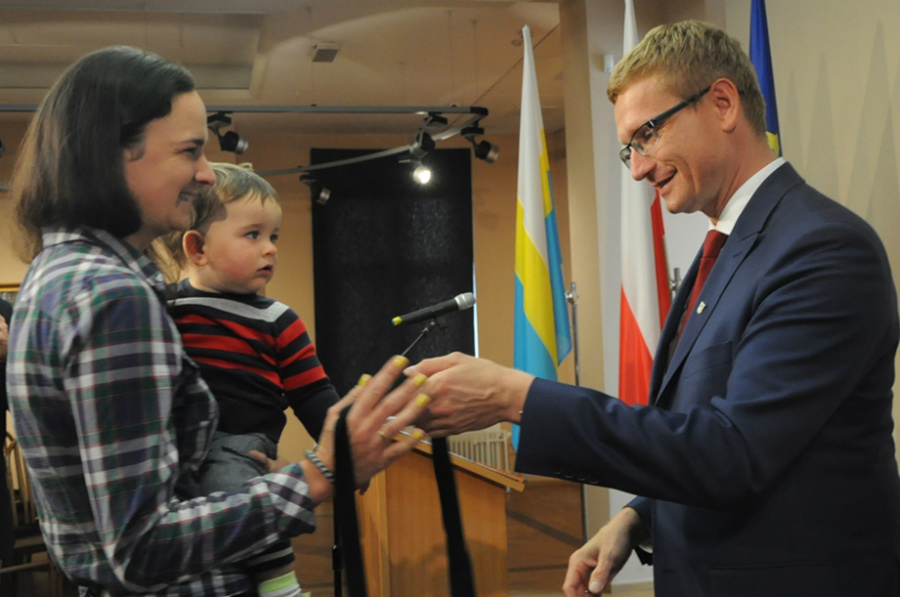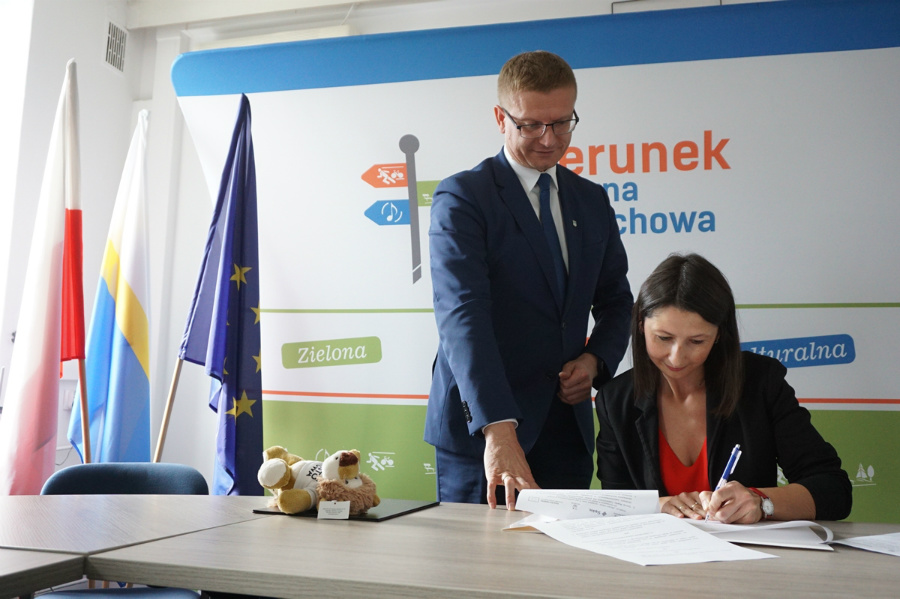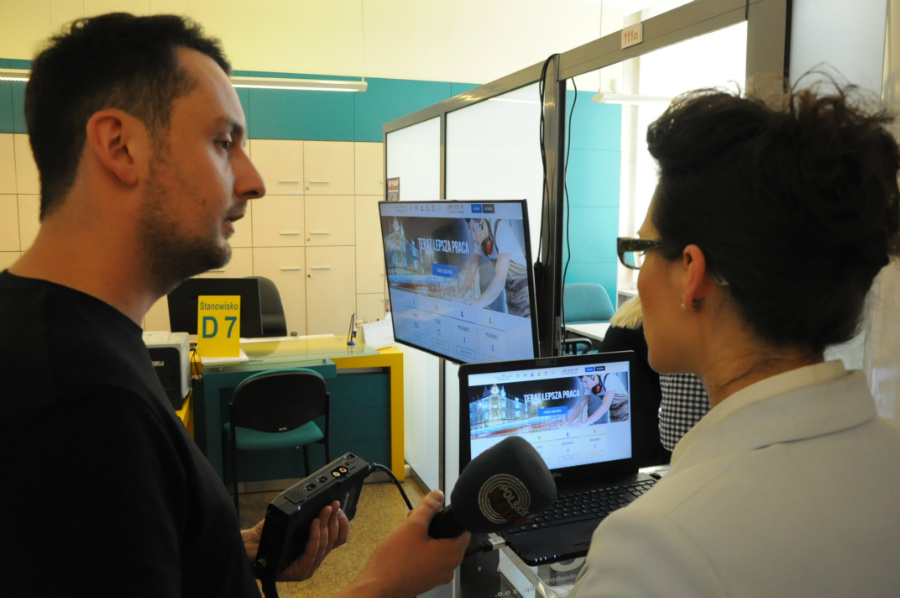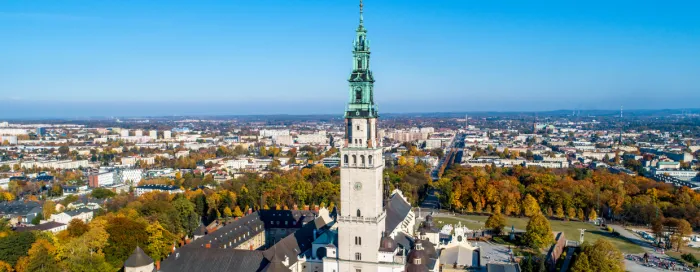This interview is part of our series “#ProgressiveLocalStories”, aiming at raising awareness on the many positive initiatives implemented by progressive cities and regions in Europe in relation to the Sustainable Development Goals. Cities and regions have become laboratories for innovative solutions and, with this series, we want to discover how progressive mayors, councillors and presidents of regions put in place policies to tackle the climate crisis, eradicate social inequalities and build more sustainable communities.
Mr Mayor, why is Częstochowa a progressive city?
First of all, I would like to focus on the idea of progress from a social point of view, although today we usually associate the “progress” slogan with technological innovations and sometimes with organizational solutions that no one has come up with before. All this serves the inhabitants well but under certain important conditions. Namely, when one thinks of progress, it is as an effective set of actions for a greater equality of all citizens: greater availability of goods and services (including common matters) and the common well-being of those who, for various reasons, have difficulties and may be left behind without support. The local government does not define all the most important matters that affect people's lives on a daily basis. It is a matter of national solutions and policies. However, the local government has a sufficiently wide field of action regarding social progress. The city is a natural and close area of common goods for those who live there. It has resources and services to which access (sometimes on a discretionary, though lawful basis) can be restricted or extended as far as possible. A progressive city definitely relies on this second approach. In all dimensions, it wants to be as open as possible to its inhabitants regarding their needs, their aspirations, their comments, their suggestions and their criticisms (when they serve the common good).
I hope that Częstochowa's residents notice that their city (thanks to the local government) tries to be increasingly friendly towards each one of them. Their city also knows how to respond to the needs of its different residents' groups, to reconcile different interests and to create a space for dialogue that takes particular account of the needs of the weaker ones. Częstochowa wants to fight discrimination and exclusion in different spheres, to be an open city and, at the same time, to be friendly to everyone. These are the reasons why it is a progressive city.

Photo credit: City of Częstochowa
Which concrete actions did you put in place (or currently still ongoing) to make your city a sustainable place and achieve the Sustainable Development Goals?
There are of course many specific examples. The municipal program “Direction Friendly Częstochowa” includes, among other things, investments to create public recreation and recreational facilities such as the Water Park, the green city centre promenade or the new multi-functional playgrounds at schools. It also envisages revitalizations - e.g. of the Leisure Park Lisiniec and of the Old Market Square. The city centre, city parks under Jasna Góra or the city transport system have all already been revitalized.
The “Better Transport” Program involves further investments in public transport, new and comfortable vehicles, as well as the renovation of the tramline or of the city bike system. We run a comprehensive policy for elderly care and all infrastructure investments are done to meet guidelines developed for people with special needs (including those with disabilities).
To z nowych tramwajów Twist, które jeszcze w tym roku trafią do naszego miasta w ramach programu Lepsza Komunikacja w Częstochowie Po przebudowie linii tramwajowej, która właśnie trwa, będzie naprawdę komfortowo, szybciej i bezpieczniej. https://t.co/zbBcMvy5X6 pic.twitter.com/OV4luw7Znm
— Matyjaszczyk Krzysztof (@MatyjaszczykK) February 6, 2020
Thanks to trainings and courses targeted at people seeking employment or wanting to find a better job, new skills that give better opportunities on the labour market have been acquired among others by “50+”people or by persons with insufficient qualifications. We also rely on corporate social responsibility and are currently providing real estate tax reliefs for companies that create good and long-term jobs for residents. Moreover, we organise education in secondary schools in adequacy with the local labour market's needs. These are elements of the next urban program called “Better Work Now”.
We know how important social participation is. This is why, amongst other things, we have been constantly improving for years the civic budget thanks to which the self-government entrusts direct decisions regarding the immediate environment to the citizens.
Together with social partners (who are virtually all interested groups and communities), we are also working on creating a coherent local equality policy to eliminate the possibility of unequal treatment for any reason. After all, “Progress” also means overcoming the social life dimensions that give unjustified privileges to some and limit others, that put them at a disadvantage and even that stigmatize them. This is what we want to get rid of and this is another example of a “progressive” change in which technology does not play a key role but offers minor organizational adjustments, changes in attitudes and a mentality change. In this sphere, the local government can actively operate, also by showing good and equitable practices to its business partners or “third sector” organizations, for example.

Photo credit: City of Częstochowa
Examples of innovative projects in Częstochowa include:
- Active parents, happy children
- Business cooperation
- On the trail of prejudice - antidiscrimination game
- Safe in your own house, video surveillance for elderly people
- Centre for better workplaces
- “Iron Oxide” – unconventional promotion of investment locations

Photo credit: City of Częstochowa
How can the European Union contribute to make your city more sustainable? How can Europe better help cities and regions to achieve the Sustainable Development Goals?
It seems that good practices coming from the countries and local authorities of the “old” European Union are and will continue to be an inspiration for sustainable development solutions for Polish cities that want to address the European leaders in this area. This is why the flow of information and the exchange of experience and knowledge on the possibilities of adapting specific programs, projects and ideas are so important. Of course, logistic and financial assistance is also extremely important and should be distributed methodically at national and regional level. This support should respond to the specific needs of the cities and the municipalities that are prepared for implementation, and be as far as possible from political discretion.
The European Union is currently experiencing its own problems. This recent period has revealed threats that nobody would have expected just a few months ago. We must believe that the European community will go through this hard test and will get out of it more united, integrated and determined in the pursuit of a sustainable development for the entire continent. Only this kind of Europe can give hope to citizens that it can respond in an efficient and just way in the face of new threats and crises.
Reprezentuję Polskę i Częstochowę w Komitecie Regionów Unii Europejskiej, do którego wydelegował mnie Związek Miast Polskich.
— Matyjaszczyk Krzysztof (@MatyjaszczykK) February 13, 2020
Dzięki komitetowi mamy wpływ na unijne prawo, które dotyczy miast i regionów, a to ważna sprawa, mająca wpływ na życie każdej i każdego z nas. https://t.co/iO5die7Ud5
Krzysztof Matyjaszczyk is mayor of Czestochowa since 2010 and a member of the European Committee of the Regions since 2019. He belongs to the Polish New Left Party (SLD).
